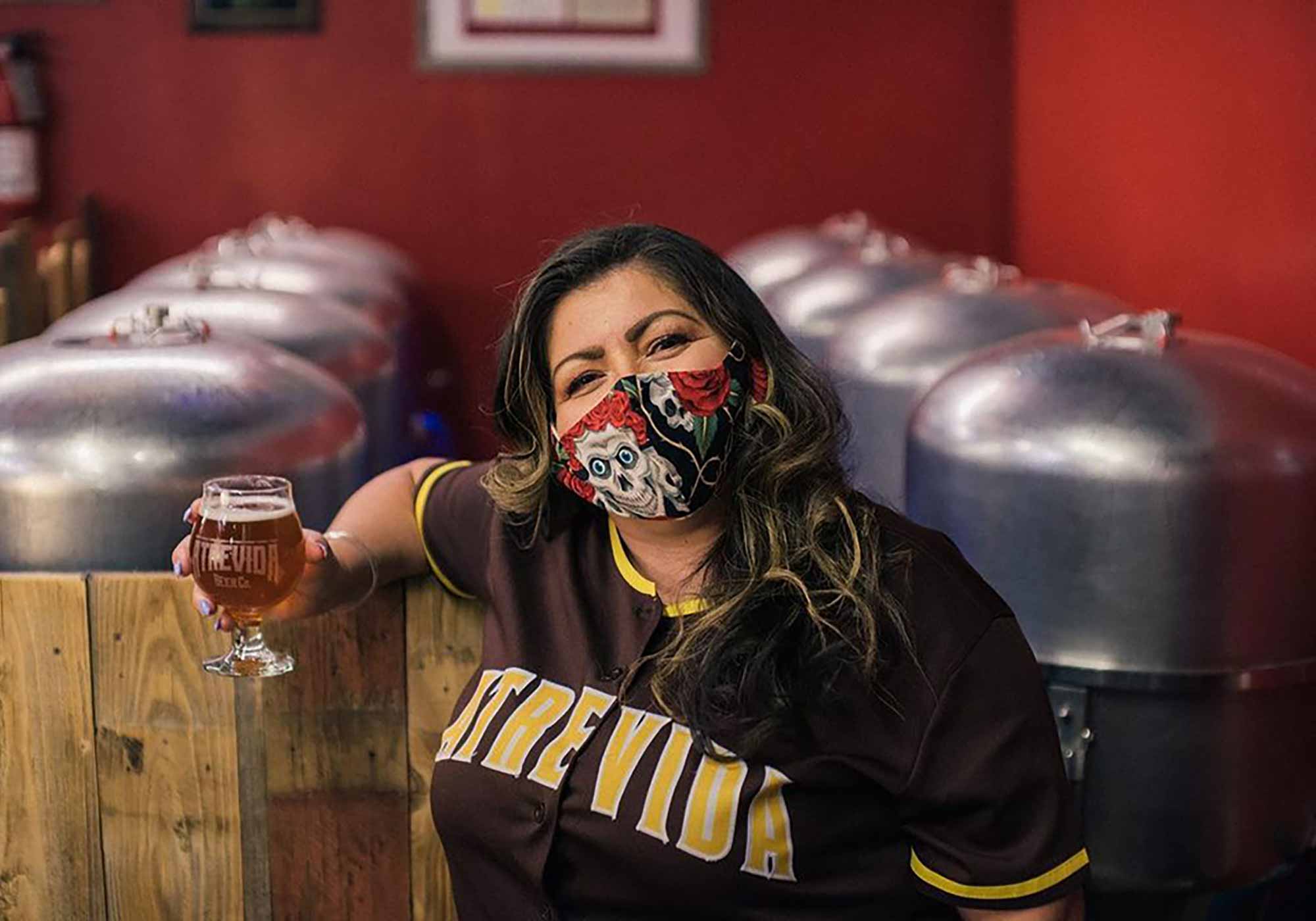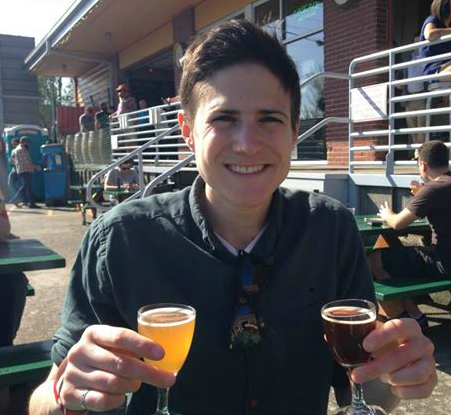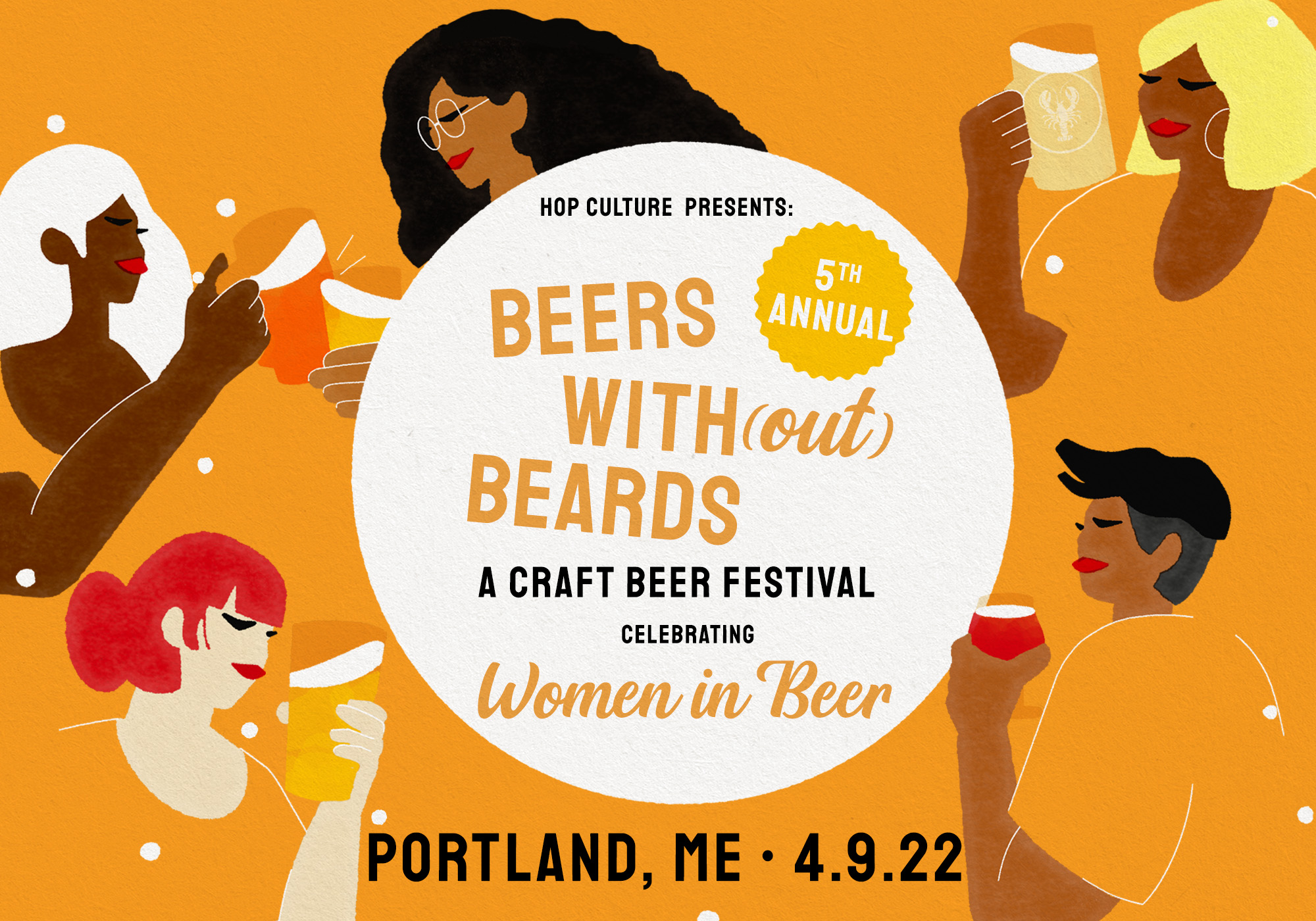Shop
The 20 Latine-Owned Breweries to Support Right Now
Latine-owned breweries showcase rich traditions, ingredients, and culture through beer.
Beers made with chapulines (crickets), tamarind, mate tea, or chinola (passion fruit). Beers inspired by horchata, a rice-based Mexican drink with cinnamon. Or Mexican hot chocolate. Or Café Bustelo, a popular coffee in Latin America. Beers tapping into cultural traditions like pomade, a hair product common among Latinos. Even beer names like Tres Lupulos (lupulos means hops in Spanish), Para Mi Gente, Nana Neta, Cafe Con Leche, and Abuelita’s Chocolate Stout. These are just some of the ways Latine-owned breweries across the country are embracing ingredients from their culture and experiences from their traditions to influence their beer.
Founded by Jessica Fierro in 2018, Atrevida Beer Co. in Colorado Springs, CO, strives to infuse Fierro’s Mexican cultural culinary flavors into her beer. While also being a strong advocate for diversity and inclusion in the industry.
“The excitement of trying a beer because you don’t know what mate tea is or tamarindo or chapulines is my way of putting my culture out there and serving it in a pint and having a dialogue about it,” says Fierro.
Similarly, Dyckman Beer Co. in New York City, founded by Juan Camilo, uses influences from his Dominican heritage throughout his portfolio. Dyckman refers to his area of New York City where “Dominican culture comes alive,” says Camilo. “It’s our own little district.”
And in Southern California, both Border X Brewing and BeerThugLife leverage indigenous ingredients or specific beer names and designs to showcase their Latine communities.
Tapping into such a rich history is so important in an industry that for many years has been ruled by a predominantly white boys club.
According to a demographic audit of brewery owners performed by the Brewers Association last year, only 2.2 percent of brewery owners are of Hispanic, Latine, or Spanish origin.
“We are part of that movement of people who aren’t content to just reflect on the colonial history of Latinos,” says David Favela, co-founder of Border X Brewing in San Diego, CA. “We are about reflecting on who we are today in a contemporary context. Not denigrating our history, but not dwelling on it either. Instead, we’re trying to reinterpret what it means be Latino/Mexican American/Chicano today. In that sense we’re cultural transformers.”
It’s a crucial transformation to an industry slowly embracing more equity and inclusion.
And although the numbers may still be small, breweries such as Atrevida Beer Co., Dyckman Beer Co., Border X Brewing, BeerThugLife, and more are illustrating a new narrative.
All through the beer in your glass.
Discovering A Unique Voice in Craft Beer
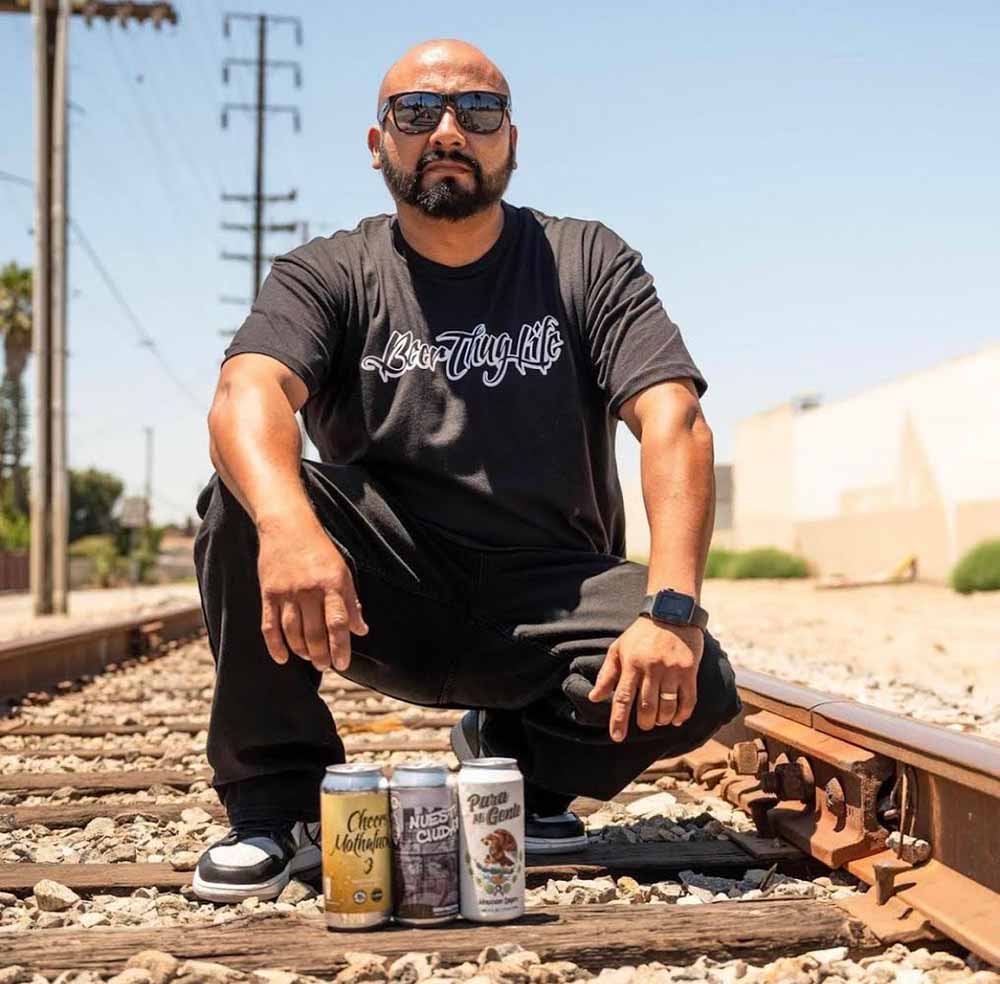
Photography courtesy of BeerThugLife
Interestingly, many Latine brewery owners distinctly remember the moment they discovered their unique point of view in beer.
Fierro’s moment came while mixing colors. With a background in cosmetology, Fierro decided to create a color so unique for one client that noone would be able to find that hue anywhere else. “My lightbulb went off,” says Fierro. “I can do this with beer. I can infuse the flavors of my culture into beer.”
In 2017, Fierro entered her beer Doña Neta made with tamarind in a national beer competition called BEERLAND, which aired on the channel VICELAND. The beer won. One year later Fierro opened her own brewery.
When David Favela and Carmen Velasco-Favela opened Border X Brewing, they had a similar “aha moment.” Originally just a project between Favela, his brother, and his two nephews, Border X started out making traditional Euro-centric beers like Scottish ales, red ales, English IPAs, and Czech pilsners.
But according to Favela, he questioned the brewery’s approach. “We respected European beer-making traditions, but if you don’t see yourself in the beer that you’re producing, why bother?” says Favela. It’s that existential question that changed everything.
“What would it mean to make a beer with our culture, with our personal experiences, and with our own individual palates?” says Favela. “Let’s look to our own treasure trove of culture and traditions and ingredients to make beers that we’re proud of and can share with other people.”
Three weeks later Favela’s nephew came back with a homebrew paying homage to the Mexican hibiscus tea drink called agua de Jamaica found at most Mexican restaurants. Pouring a deep ruby red from the hibiscus flower, the beer “blew our minds,” says Favela. “That experience cemented our decision. I didn’t know what came next, but the first step was a homerun.”
Today, Favela, a first-generation immigrant from Mexico who grew up in Escondido, CA, almost exclusively brews beers reminiscent of his heritage.
Like his Horchata Golden Stout or Abuelita’s Chocolate Stout.
In New York, Dyckman Beer Co. Founder Juan Camilo’s moment came while reading a free newspaper called amNewYork. The experience was so life changing that he kept the front page article. And even has the date memorized – Oct. 30, 2012.
The piece covered breweries to visit in Brooklyn, Queens, and Staten Island. But Camillo, who was born in the Dominican Republic and moved to New York City at five years old, noticed that his community in Washington Heights, a neighborhood in North Manhattan with the largest Dominican population in the United States, had no representation.
“Wow, this was the most obvious business idea,” says Camillo, who studied finance and accounting and actually worked as a trader on Wall Street at the time. “How cool would it be to have a craft beer company with Latino roots?”
Edgar Preciado, aka @BeerThugLife, didn’t start out as an icon in the Latine community. But he reached instant Instagram fame when he posted a video of himself chugging Monkish’s triple IPA Fog Dog in just a few seconds. Within twenty-four hours, the post had over 1,000 views.
The video flipped craft beer’s perceived pretension on its head, breaking the stereotype of craft beer drinkers as snooty, white, bearded hipsters. That is to say the Mexican-American who grew up in Compton quickly found himself the center of attention in the Latine community. “I started getting messages from people saying thank you for representing Latino culture,” says Preciado.
Today, Preciado has turned BeerThugLife into a real brewery, pumping out 2,000 bbls a year of beers like Nuestra Ciudad, Para Mi Gente, and Tres Lupulos. All representing his Latino culture.
But even with these great ideas, opening a Latine-owned business in the craft beer industry has many hurdles.
The Challenges of Opening a Latine-Owned Brewery
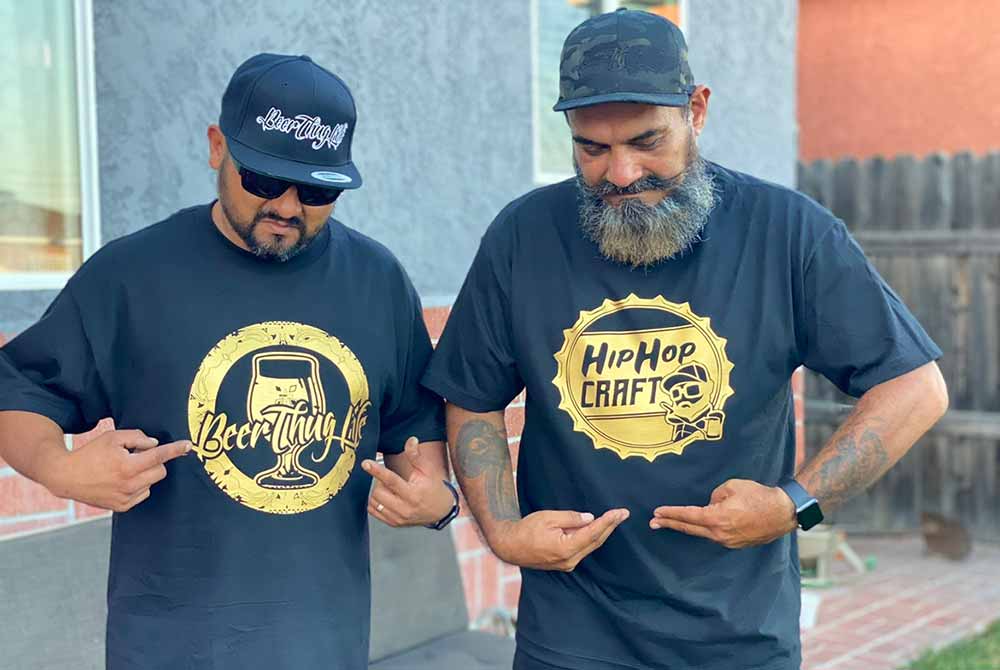
Photoraphy courtesy of BeerThugLife
For minority-owned businesses, the barriers to entry remain high in the craft beer industry. Many BIPOC-, Native-, Latine-, Asian-, or women-owned breweries have to find alternative ways to open their doors. Whether through contract brewing, a brewery incubator, or applying to mentorship programs like Samuel Adams Brewing the American Dream.
Camillo found money to be the biggest initial barrier to launching Dyckman Beer Co. According to Camillo, most startup capital for businesses comes from friends and family. “I didn’t have a cousin to go to for $50,000,” says Camillo, who contract-brewed in the beginning to save money.
But as Camilo’s business grew, he says the know-how and lack of minority mentorship proved most difficult.
“When you are an owner of a business you are wearing every hat,” says Camillo. “You are running every department and you have to learn from the ground up. A lot of folks of color and minorities aren’t privy to this side of the business.” Luckily, Camillo’s background in finance gave him a leg up, but he still felt that he had no one in his community he could turn to for advice. “I literally had no other person of color who started a beer company from zero,” says Camillo. Instead, he had to learn how to work with distributors and open accounts all on his own. “I had to spend my own money or make my own mistakes,” says Camillo.
And in the start-up business making your own mistakes will almost certainly be costly, literally.
But the work paid off. Within the first six months Camilo secured twenty accounts across New York City and within the next three years grew to over 300 accounts.
Similarly, as a woman- and Latine-owned brewery, Atrevida ran into trouble on all fronts from sourcing funding to battling biases. According to Fierro, people questioned her right from the start. “All of a sudden a Latina girl is opening her doors because she won a TV show and thinks she can make beer,” says Fierro. “I don’t look like a brewer because I don’t have this long beard. Instead, I wear makeup, I have nails, and I do my hair. But at the end of the day, I’m a brewer.”
Instead of engaging, Fierro chose to put her head down and build a business her way. Which included hiring an all-women and one male brew crew and naming the brewery Atrevida, which means a bold, daring, or audacious woman. “I didn’t need anyone’s permission to tell me I could be a part of this industry,” says Fierro. “I wanted to set myself up for success to provide opportunities for other women and underrepresented communities and give folks a safe space to learn and professionally develop.”
Likewise, Preciado has heard people say that because he’s Latino he doesn’t know how to brew beer. But that hasn’t deterred him from bringing craft beer into his neighborhood in Compton, which he says has always been recognized as gang-infested and crime-ridden. “There are actually a lot of good people here that just don’t have access to [craft beer],” says Preciado.
It’s a theme that runs through many Latine-owned breweries: giving back to their communities.
Creating a Sense of Place for the Latine Community
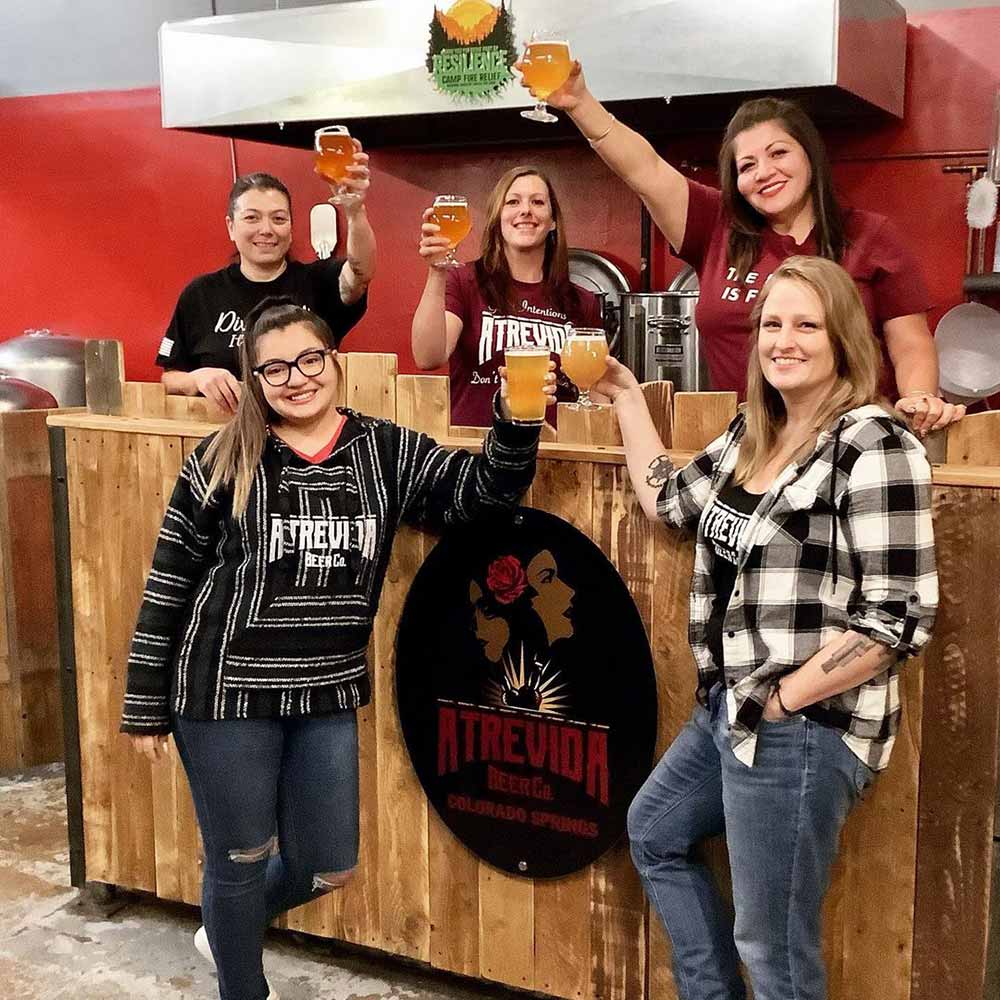
Photography courtesy of Atrevida Beer Co.
Fierro has a phrase plastered across her front door: Diversity. It’s on Tap.
It’s the first words you see when you walk in and it’s all over her brewery from the merchandise to the walls. “That is my company culture and with everything we do that’s the message: diversity, inclusion, and equity,” says Fierro.
That starts with creating a place where people feel safe to drink a beer. According to Fierro, people constantly come into her taproom saying she reminds them of their tía (aunt) or their mom’s sister. “Having that familiar feel is huge,” says Fierro.
It’s a feeling that Favela also found crucial at Border X.
“I’ve heard customers tell me when I come here, ‘I feel good, I feel you see me, I feel comfortable,’” says Favela. “Though they may have grown up poor, though they may have been discriminated against, they matter.”
When customers come into Border X and see a Horchata Golden Stout or Abuelita Chocolate Stout on the menu, “It brings a smile to their face,” says Favela. “It actually gives them a sense of pride and acknowledgement that our culture is worthy of celebration, that it stands toe to toe with any other culture.” Favela likes to say that they “serve pride in a glass.”
Camilo shares that sentiment. Although at the moment, Dyckman Beer Co. doesn’t have a brick-and-mortar, Camilo says as “the only Dominican beer company in the universe,” the beers themselves give his community a sense of pride and belonging. For example, when folks see his Chocolate Con Leche stout the language itself makes people feel at home.
Giving underrepresented communities a safe place to drink is so important.
In fact, to create even more of a community space, Border X and BeerThugLife will be teaming up to open a brewery in Bell, a suburb of Los Angeles that’s eighty percent Latino. “[Currently], people in our community, which is a low-income community, have to drive to other neighborhoods to try beer,” says Preciado. “Even though it could be a brown- or black-owned brewery, they’re still opening them up in affluent neighborhoods and we need these breweries to open up in our neighborhoods.”
In that same vein, Border X recently opened the all-female-run Mujeres Brew House. The taproom has immediately brought a sense of place to the Latina and overall women-drinking community. “I dedicated my time and energy to empower women in craft beer and create diversity in the industry because that is what is needed,” says Carmen Velasco-Favela, who launched Mujeres Brew House with Esthela Davila.
But it goes beyond just creating a safe space.
Fierro, Favela, Velasco-Favela, Camilo, and Preciado have all successfully weaved the unique stories, traditions, and ingredients from their respective backgrounds into their beers.
Showcasing Latine Heritage Through Ingredients
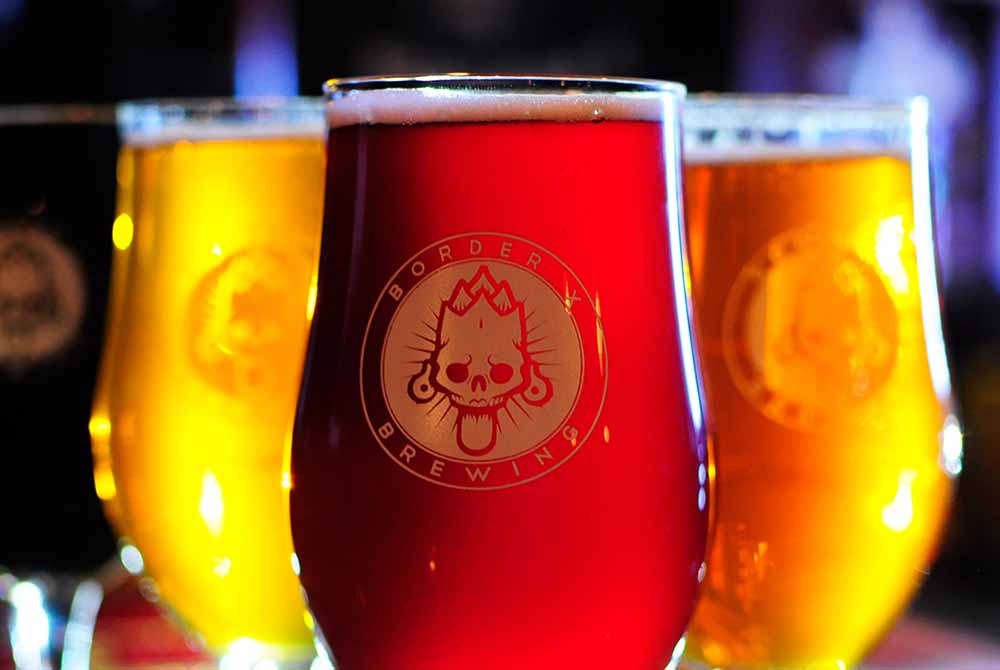
Photography courtesy of Border X Brewing
One of Mujeres Brew House’s most popular beers has been Hola Saladito! Con Naranja. The gose-style beer riffs off something Velasco-Favela and Favela ate as kids – a half of an orange with a saladito inside. A salted or spicy plum, a saladito is squeezed, juiced, and eaten. “I swear it’s my favorite beer right now,” says Velasco-Favela. “That beer flew. We tapped it and it was gone.”
Likewise at Border X, the beer that started it all was based off a traditional Hispanic beverage. Called Blood Saison, the beer took inspiration from the traditional Mexican drink Jamaica, incorporating real hibiscus, agave, and crystal malts.
Similarly, mate tea, a drink common in Argentinian culture, inspired a beer called LaLa’s Mate at Atrevida Beer Co. And other ingredients like chapulines (crickets) influenced Chapulin Colorado. “Here it’s like, oh my god, I dare you to eat it,” says Fierro. “But in Mexico, [chapulines] are eaten like chips.” In fact, Fierro actually ordered extra crickets from Oaxaca, Mexico, to serve to her customers alongside the beer.
Solely through a beer, Fierro created a cultural crossing of paths.
Every time Camilo embarks on a recipe, he thinks about brewing craft beer inspired by the people of Uptown NYC. It’s what Dyckman Beer Co. is all about.
For instance, during the summer Camilo brews a Chinola wheat beer, which means passion fruit in English. It’s a very popular fruit in Latin America during the warmer months.
Or Cafe Con Leche, a coffee and cream milk stout inspired by drinking Café Bustelo every morning. A popular coffee in Latin America, Café Bustelo has a very distinct flavor profile. Camilo added a dark espresso to a coffee stout base with lactose to create the Cafe Con Leche stout that “literally describes our morning coffee,” says Camilo. It’s a beer that has a greater purpose. “I see Dyckman Beer as a beer of the Dominican diaspora,” says Camilo. “We’re clearly Dominican, but we’re also American. We love cafe con leche, but we can make it a craft beer out of our culture.”
And it’s not just ingredients that help cross those cultural boundaries.
Showcasing Latine Heritage Through Stories and Traditions
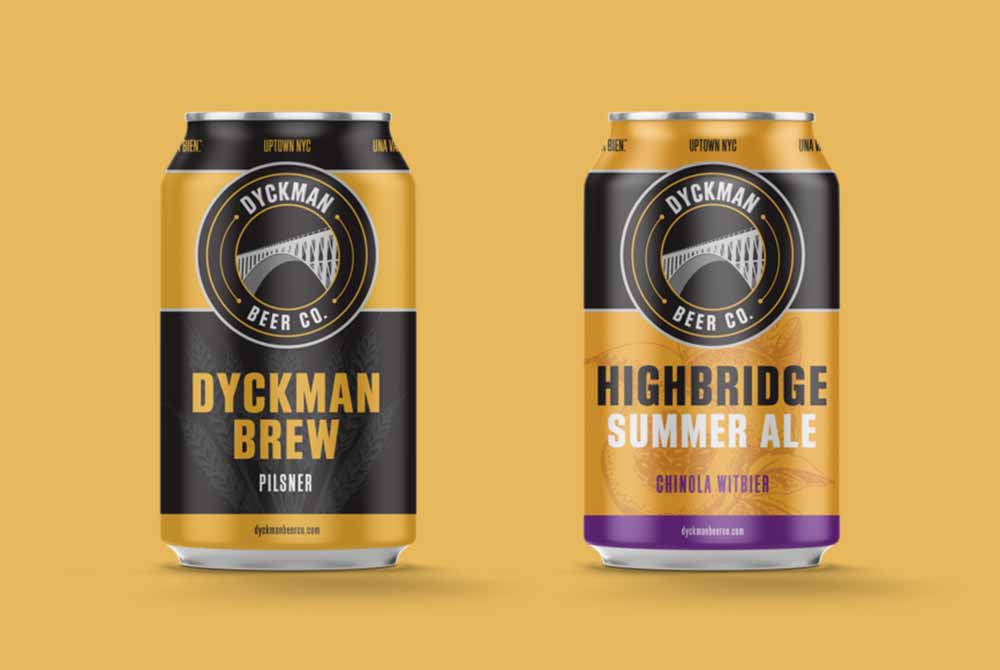
Photography courtesy of Dyckman Beer Co.
At Atrevida, Fierro makes sure that every single beer on the menu has a narrative. Because those stories create a dialogue.
For instance, Fierro’s award-winning Dolores Huerta lager references Dolores Clara Fernandez Huerta, one of the most influential Latina labor activists of the twentieth century. As the leader of the Chicano civil rights movement, Huerta fought for economic improvements for Hispanics.
Similarly, Nana Neta, a beer with tamarind, references Fierros childhood summers with family in Mexico. As a young girl, Fierro and her sister would make tamarind candies from scratch with her grandmother; they’d put four or five in a baggie and sell them around the neighborhood. “I remember being embarrassed to sell candies with my grandmother,” says Fierro, because being from the States earned them a reputation as little rich kids. Even though that was far from the truth. “Turns out years later I’m using that same exact ingredient and recipe and incorporating it in my beer…that became the catalyst for opening my doors.”
At Dyckman Beer Co., Camilo considers his Dyckman Brew a nod to the Dominican Republic’s super popular Presidente beer. Just an elevated version. Presidente is to the Dominican Republic as Bud Light is to the United States; it’s synonymous with the Hispanic country. Camilo simply took that narrative and put his craft spin on it.
Likewise, stories are the crux for most of the beers at Border X. “We are the stories that never get to be told,” says Favela. “We are the communities that never get served to our tastes, to our liking, to our preferences. Border X and Mujeres are striving to serve those underserved markets.”
And lastly, for Preciado his culture does play a part in the beers brewed at BeerThugLife.
For example, he makes a beer called Tres Lupulos, a riff off of Tres Flores, a classic pomade used in the Latine community. “Brings some nostalgia to us because, in the Latin community back in the day, we used to wear pomade to slick back our hair,” says Preciado. The actual design on the beer can mimics that of the classic Tres Flores jar, wrapped with the iconic red and green branding. When he made the beer, Preciado says a lot of Latinos told him it brought back memories.
But simultaneously Preciado says he’s actually resisted calling BeerThugLife a Latine brewery because it can be a double-edged sword.
Fighting Stereotypes in American Craft Beer
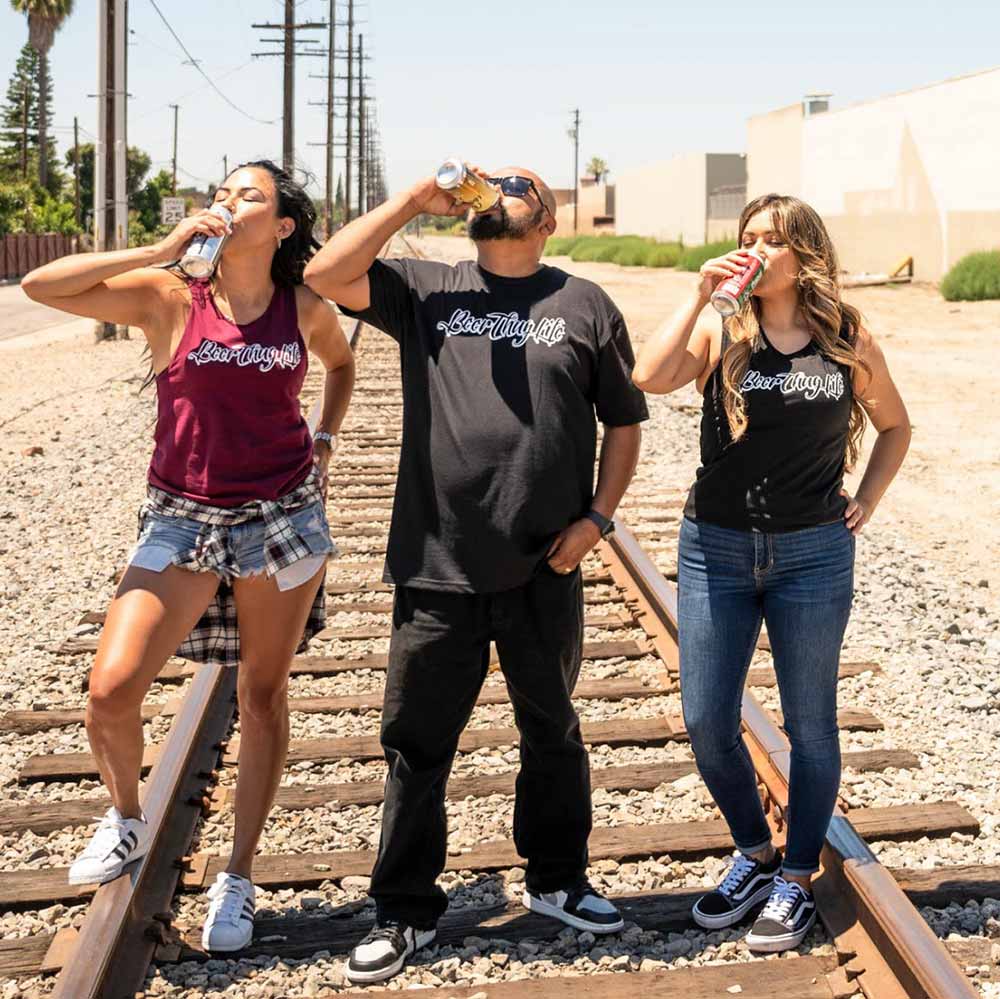
Photography courtesy of BeerThugLife
Even with success, many of these Latine brewery owners are still fighting stereotypes in their communities.
It’s why BeerThugLife doesn’t want to be seen solely as a Latine brewery. People have expectations that as a Latine brewery you will make a horchata beer or a Mexican lager. “They bundle you up in all these stereotypes,” says Daniel Rosales, Preciado’s business partner. “We always just wanted to be a brewery that uses our culture in some of the designs and beers we do.”
That’s precisely why it took Fierro so long to make a chile beer or that aforementioned Mexican lager. “People came in expecting that because it’s a Latine place,” says Fierro. They’d ask where’s the Mexican lager or chile beer. “I’m more than that. I can do more,” says Fierro.
Those are the cultural stereotypes she and her husband Rich still fight in Colorado Springs. Fierro recounts a story while out at a bar where a bartender told her about a white couple trying to remember the names of the owners of Atrevida. “The husband goes, you know the Mexican couple,” says Fierro. “If I said the white couple, you wouldn’t know who that is. There are too many. But you say the Mexican couple and you know that’s Jess and Rich. That struck a chord with me. It’s crazy that you can say the Mexican couple in a big city and you know exactly who that is.”
For Preciado, he says overall inclusion is the ultimate goal with BeerThugLife. And that means everyone.
“We love our culture, but we won’t always be everything Latino because that’s not inclusive,” says Preciado. “Inclusive is everyone whether Black, Brown, white, Asian. A lot of people have a lot of things in common. I’ve been with an older white gentleman and thought we had nothing in common. The next thing I know, we start drinking a beer and, fuck, we have so much in common.”
It’s truly the beer that has the power to unite across cultures. So the question now becomes: How can we find more ways to break down these barriers in the industry.
The Future: How Can We Knock Down Barriers?
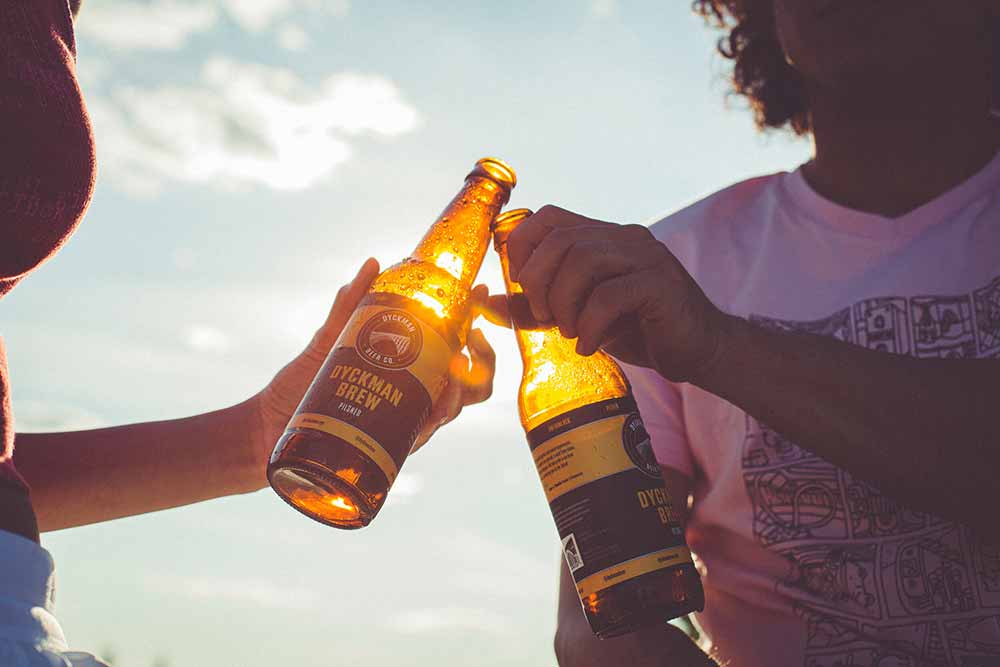
Photography courtesy of Dyckman Beer Co.
There are small steps the industry can take to be more diverse and inclusive.
According to Camilo, even something as simple as offering apprenticeships targeting minorities can have a huge impact. Camilo says if he had the opportunity to intern at a brewery before opening Dyckman, he could have saved himself time and money. “Let’s get a person of color into breweries,” says Camilo. “That’s one way of knocking down barriers.”
Preciado agrees, “I want everyone who is a person of color from a ghetto or place where there isn’t a lot of money to get the same opportunities to learn how to brew beer and make a business out of it.”
Likewise, Atrevida encourages breweries to be more inclusive in their hiring practices. “You have to open up doors to more than just one demographic,” says Fierro. “There is a pool of incredible talent not being tapped into because you’re a woman or because you belong to a certain community as opposed to being judged solely on your skill.”
Above all as a consumer consider trying a beer from one of these Latine-owned breweries. Not only will you be supporting a minority-owned business, but you’ll also be drinking a glass of history and tradition. And chances are you’ll be trying something you’ve never tasted before.
20+ Latine-Owned Breweries Across the United States
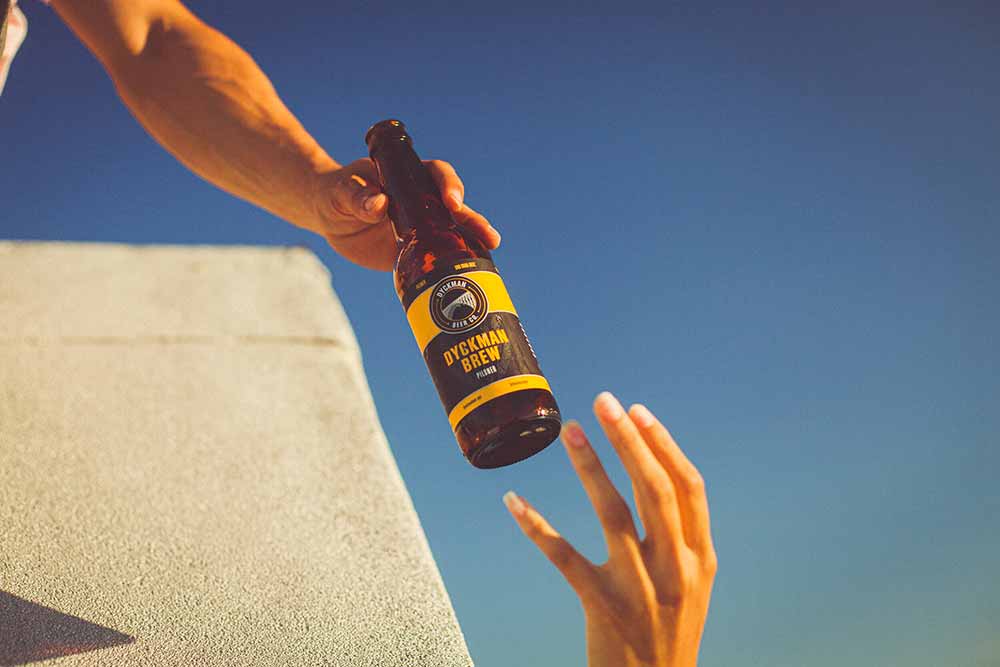
Photography courtesy of Dyckman Beer Co.
While this certainly isn’t a complete list, here are 20+ Latine-owned breweries to support. If you know of others, please reach out to us at [email protected]!
5 Rabbit Cerveceria
Bedford Park, IL
Atrevida Beer Co.
Colorado Springs, CO
BeerThugLife
Compton, CA
Border X Brewing
San Diego, CA
Brazo Fuerte Artisanal Beer
Watertown, MA
Brewjeria Company
Pico Rivera, CA
Brockton Beer Company
Brockton, MA
Casa Humilde Cerveceria
Chicago, IL
Cerveceria Colorado
Denver, CO
Chula Vista Brewery
Chula Vista, CA
DeadBeach Brewery
El Paso, TX
Del Cielo Brewing Company
Martinez, CA
Dirtbag Ales
New York, NY
Dyckman Beer Co.
New York, NY
Fox Tale Fermentation Project
San Jose, CA
Hot Plate Brewing Co.
Pittsfield, MA
Islla St. Brewing
San Antonio, TX
Miel Brewery & Taproom
New Orleans, LA
Mujeres Brew House
San Diego, CA
La Doña Cervecería
Minneapolis, MN
Misfit Outpost
Cypress, TX
Progress Brewing
South El Monte, CA
Raíces Brewing
Denver, CO
Soundgrowler Brewing Co.
Tinley Park, IL
Urban Roots Brewing & Smokehouse
Sacramento, CA
Xicha Brewing Co.
Salem, OR

